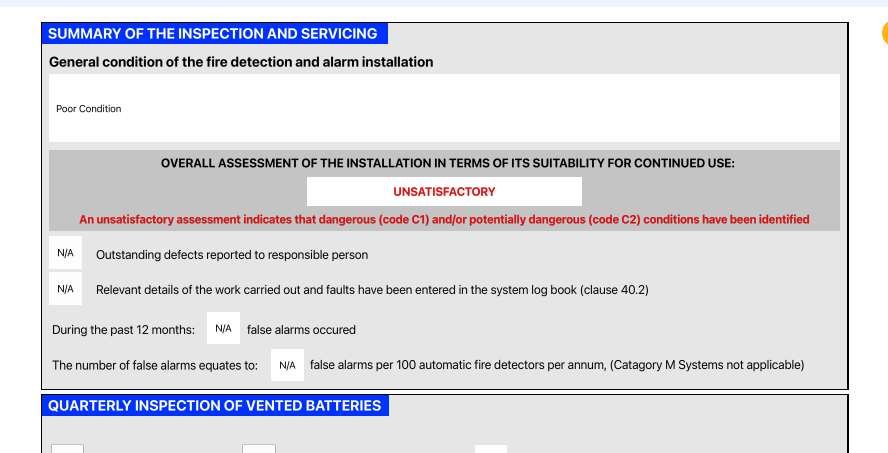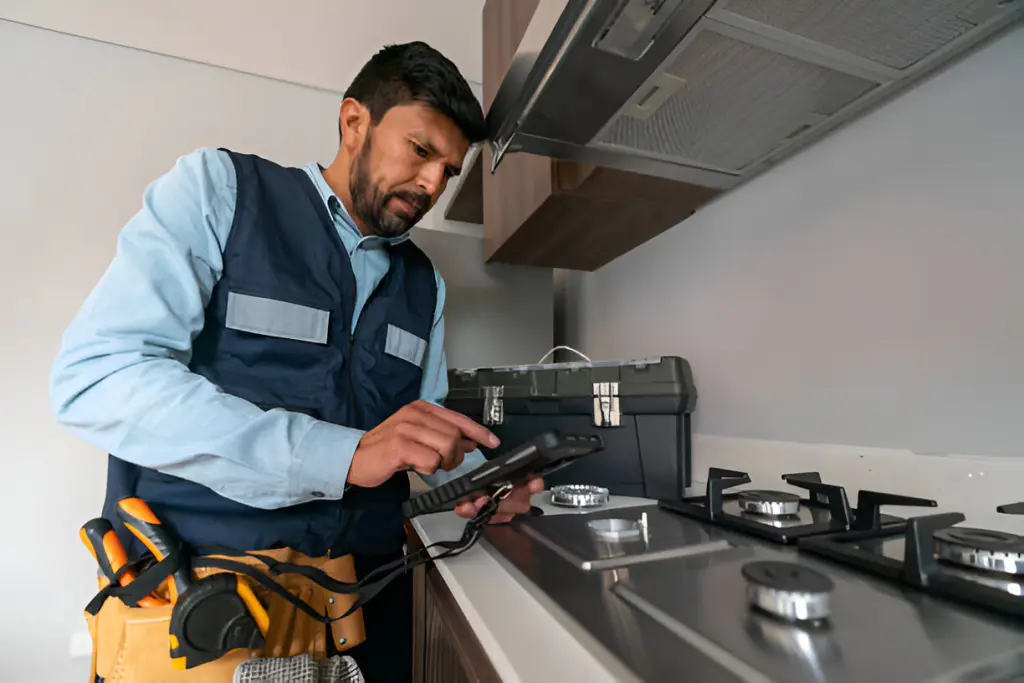In the realm of property management, ensuring the safety of gas appliances stands as a paramount responsibility for landlords, encapsulated within the requirements of the CP12 and the Landlord’s Gas Safety Certificate. While both documents fulfill legal obligations under UK law, their specific roles and implications often blur, creating a potential oversight in compliance practices. By dissecting the nuances between these certificates, landlords can not only adhere to legal standards but also fortify the safety of their tenants. The ensuing discussion aims to clarify these distinctions, offering insights that could significantly impact the management of rental properties. Let’s Understanding the Difference Between a CP12 and a Landlord Gas Safety Certificate.
Why Gas Safety Is Crucial for Landlords
Gas safety is paramount for landlords, as it directly impacts the well-being and security of tenants. Ensuring compliance with stringent gas safety regulations is not just a legal mandate but a fundamental responsibility to prevent potential hazards like gas leaks, carbon monoxide poisoning, or explosions.

In the context of property management, the adherence to these safety norms is overseen through rigorous assessments and certifications conducted by qualified engineers.
Landlords must facilitate annual inspections and maintain accurate records as part of regulatory compliance. These procedures involve examining gas appliances, pipework, and flues to ensure they are operating safely and meet the current safety standards.
Failure to comply can result in severe legal repercussions, including fines or imprisonment, not to mention the possibility of grave tenant injuries or fatalities, which could further escalate to liabilities under tort laws.
Moreover, maintaining gas safety elevates property value and attracts discerning tenants who prioritize safety in their living environment. It also minimizes the risk of costly emergency repairs and enhances the longevity of gas installations, ensuring operational efficiency and energy conservation.
Thus, the vigilant observance of gas safety regulations forms an integral component of successful and ethical property management.
What Exactly is a CP12 Certificate?
Moving from the general importance of gas safety, we now examine the CP12 certificate, formally known as the Landlord’s Gas Safety Record. This document is a mandatory certification for landlords in the UK, ensuring all gas appliances, fittings, and flues provided for tenants are safe and meet legal standards.
The CP12 certificate encompasses a thorough inspection, which must be carried out annually by a Gas Safe registered engineer. During the assessment, the engineer checks the soundness of all gas appliances and their installations. This includes examining the operational safety of gas appliances to ensure they are working correctly without any risks of carbon monoxide leaks or gas escapes.
The inspection also involves checking the adequacy of ventilation and confirming the safe operation of safety devices. Furthermore, the CP12 includes an assessment of the condition of the gas pipework and the stability of the gas meter.
Post-inspection, the engineer provides a detailed report, which forms the CP12 certificate. This report includes descriptions of each checked item, any defects identified, actions taken or recommended to remedy issues, and confirmation of the results of operational safety checks.
The landlord must retain this certificate for a minimum of two years and provide a copy to existing tenants within 28 days of the inspection and to new tenants upon their tenancy start.
Explaining the Landlord’s Gas Safety Certificate
The Landlord’s Gas Safety Certificate, or CP12, is a critical document that serves as a formal record of gas safety inspections undertaken in rented properties. This certificate is mandated by law under the Gas Safety (Installation and Use) Regulations 1998, which require landlords to ensure that all gas appliances, fittings, and flues provided for tenants are safe.

Here are three crucial elements outlined in the Landlord’s Gas Safety Certificate:
- Details of Each Inspection: The certificate must include specific information about the appliances checked, including the type, location, and condition. It also records any defects identified and actions taken to rectify them. This ensures a thorough audit trail for safety compliance.
- Identity and Registration of the Engineer: It is compulsory for the inspections to be carried out by an engineer registered with the Gas Safe Register. The certificate will list the engineer’s name and registration number, underscoring the legitimacy and expertise of the inspector.
- Validity and Frequency of Inspection: The certificate is valid for 12 months and must be renewed annually. Landlords must arrange for a Gas Safe registered engineer to perform these safety checks every year, thus maintaining continuous compliance and ensuring tenant safety.
This document not only promotes safety but also serves as a legal shield for landlords, verifying that they have taken the necessary steps to ensure their properties meet safety standards.
Comparing CP12 and the Landlord’s Gas Safety Certificate
While it appears that CP12 and the Landlord’s Gas Safety Certificate are used interchangeably, subtle distinctions exist between these terms.
The CP12, commonly referred to simply as the “Gas Safety Certificate,” is a specific form of documentation that arose from the ‘CORGI Proforma 12’ used historically when CORGI (Council for Registered Gas Installers) was the United Kingdom’s statutory gas safety body. Since the Gas Safety (Installation and Use) Regulations 1998 came into effect, the responsibility for maintaining the register of gas engineers has been transferred to the Gas Safe Register.
The Landlord’s Gas Safety Certificate, while fundamentally serving the same legal requirements—to ensure that all gas appliances, fittings, and chimneys/flues are safe for tenant use—does not have its origins or designation tied to a specific form like the CP12.
Instead, it is a more encompassing term that refers to the documentation provided by a qualified Gas Safe registered engineer after a thorough inspection of gas installations in rental properties.
Understanding these distinctions is crucial for compliance and regulatory adherence.
Using the correct terminology reflects not only legal precision but also professional integrity and commitment to safety standards, pivotal in property management and rental market engagements.
The Importance of Using the Right Terminology
Why should precise terminology be emphasized in legal and regulatory contexts? In the realm of property management and legal compliance, specific terms often denote distinct legal obligations and rights. The use of accurate terminology is crucial for ensuring clarity in responsibilities and for safeguarding all involved parties against potential legal disputes. Misunderstandings arising from incorrect or vague terminology can lead to significant legal repercussions, including non-compliance penalties and void insurance policies.
Here are three reasons why the correct use of terminology is paramount:
- Legal Precision: Each term carries specific legal implications. For example, a “CP12” refers to a specific form, the Gas Safety Certificate, which a landlord must renew annually. Using the precise term ensures compliance with specific statutory requirements.
- Operational Clarity: Clear terminology facilitates efficient property management. Stakeholders, including service engineers, property managers, and tenants, rely on unambiguous terms to understand their roles and responsibilities clearly.
- Risk Management: Proper terminology helps mitigate risks associated with the misinterpretation of legal documents and compliance requirements. It ensures all parties are adequately informed and can take appropriate actions to adhere to regulations.
Understanding and using the right terminology is not just about linguistic accuracy but is integral to maintaining legal integrity and operational efficacy in property management.
Steps to Get a CP12 or Landlord’s Gas Safety Certificate
Securing a CP12 or Landlord’s Gas Safety Certificate requires landlords to follow several specific steps to ensure compliance with legal standards and tenant safety.

Initially, landlords must identify a registered gas-safe engineer, as only these professionals have the authorization to conduct the requisite inspections and issue the certificate. Verification of the engineer’s Gas Safe registration, either via the official Gas Safe Register website or through their ID card, is crucial for compliance and safety assurance.
Once a qualified engineer is selected, the landlord should arrange for the annual inspection, which must cover all gas appliances, flues, and related installations within the rented premises.
During this inspection, the engineer assesses the safety and operational functionality of these systems, checking for gas tightness, burner pressure, ventilation provisions, and the correct operation of safety devices.
The completion of the inspection leads to the documentation of findings and the issuance of the CP12 certificate. This document outlines any detected faults and advisories for repair.
It is the landlord’s responsibility to ensure that any recommended actions are promptly addressed.
Landlords must retain the certificate for at least two years and provide a copy to existing tenants within 28 days of the inspection and to new tenants upon their move-in.
Conclusion: Meeting Compliance Standards for Safe Rental Properties
Ensuring adherence to legal and safety standards through the acquisition and maintenance of a CP12 or Landlord’s Gas Safety Certificate is fundamental for landlords aiming to provide secure living conditions.
This compliance not only mitigates risks but also fortifies the trust between tenant and landlord, ensuring that all gas appliances and fittings are systematically reviewed and certified as safe for use.
To effectively meet these compliance standards, consider the following strategic actions:
- Regular Inspections: Engage a Gas Safe registered engineer to conduct annual inspections and any necessary repairs. This proactive approach helps in identifying potential hazards before they pose a risk.
- Documentation Management: Maintain a systematic record of all gas safety checks and certifications. Keeping thorough records can provide legal protection and simplify compliance audits.
- Tenant Communication: Regularly inform tenants about the importance of gas safety and the measures being taken to ensure it. Educating tenants can lead to more vigilant usage of gas appliances and prompt reporting of any issues.
Conclusion
In conclusion, thorough understanding and adherence to regulatory requirements for gas safety are critical for landlords. Differentiating between a CP12 and a Landlord’s Gas Safety Certificate, although often used interchangeably, is essential for ensuring compliance with legal standards. Landlords must ensure that proper inspections are conducted annually by qualified Gas Safe registered engineers and that the appropriate documentation is maintained to guarantee the safety of rental properties and fulfill legal obligations.









